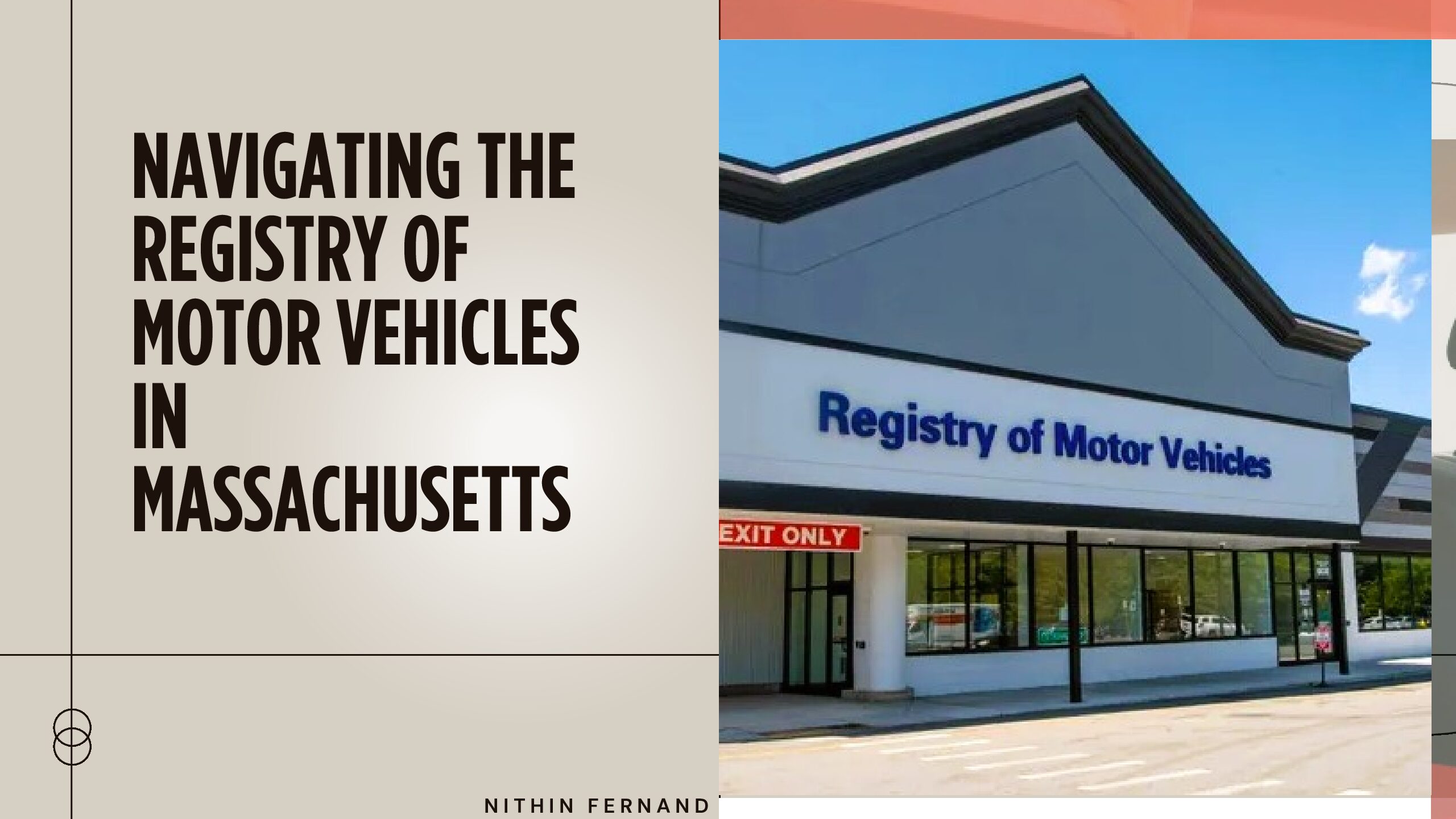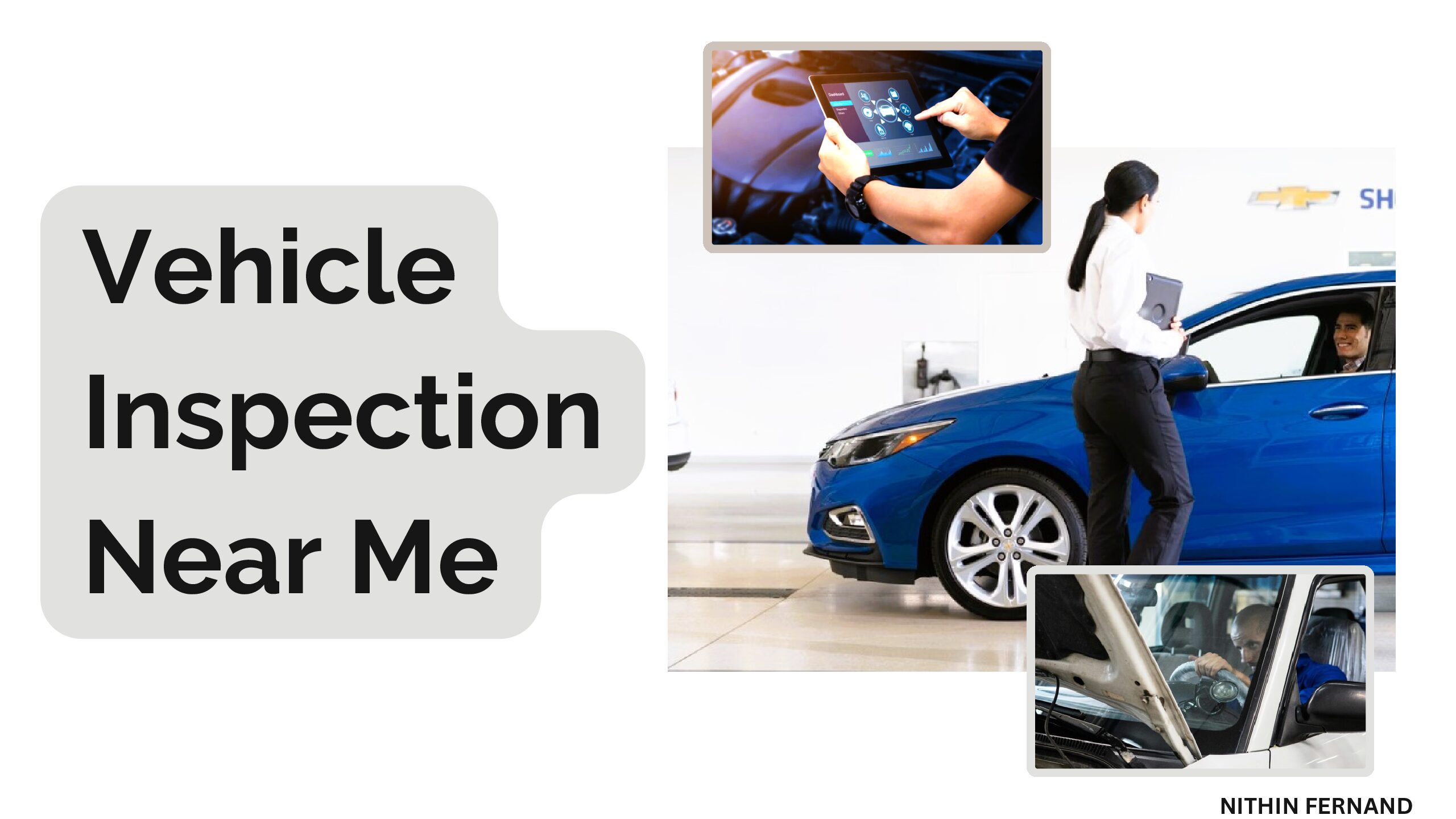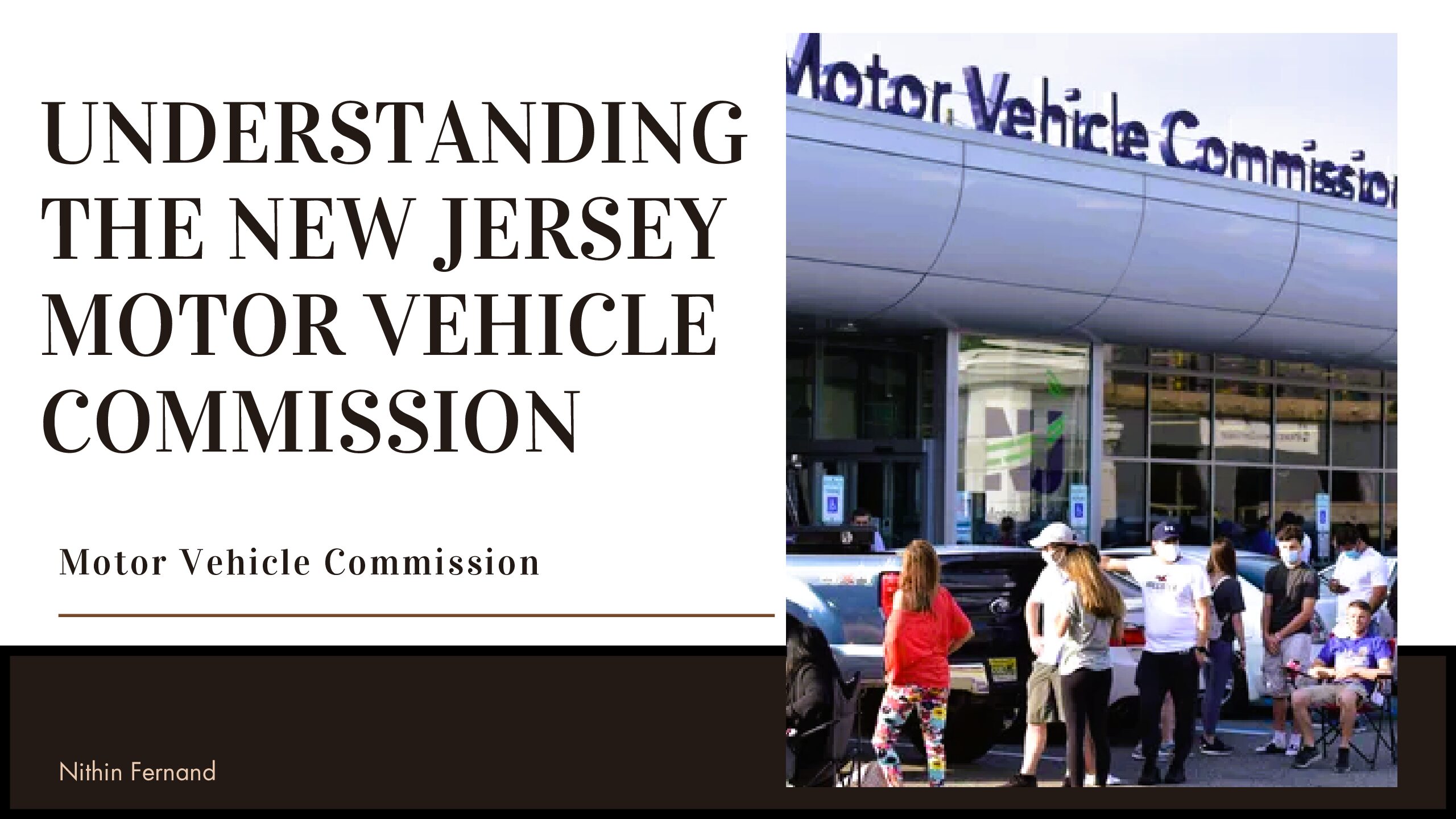Navigating the Registry of Motor Vehicles in Massachusetts: A Comprehensive Guide 2024
The Registry of Motor Vehicles (RMV) is a crucial institution in Massachusetts, responsible for managing the registration of vehicles, the issuance of driver’s licenses, and the enforcement of state driving laws. With millions of vehicles on the road and a diverse population of drivers, the RMV facilitates essential services that not only ensure road safety but also streamline the driving experience for residents.
Understanding RMV services is vital for anyone in Massachusetts, whether you’re a new driver navigating the licensing process or a long-time vehicle owner dealing with renewals and inspections.
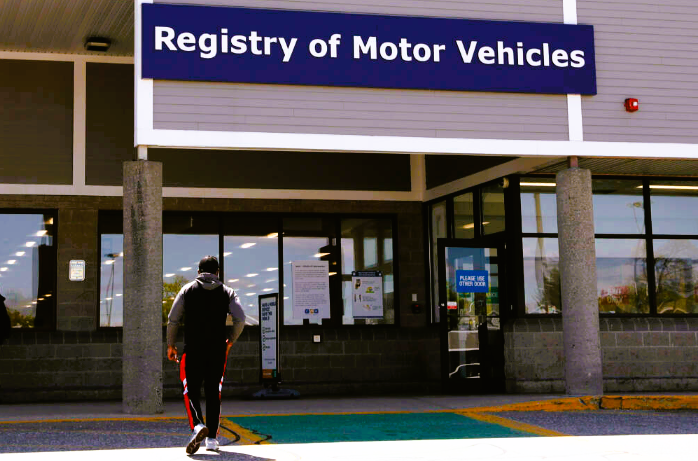
This comprehensive guide aims to demystify the various functions of the RMV and offer insights into its services. By highlighting important procedures, regulations, and tips for efficient visits—both in-person and online—this article will help residents confidently navigate the complexities of the RMV. Ultimately, our goal is to empower readers with the knowledge they need to effectively interact with the RMV, making their experience smoother and more efficient.
Table of Contents
History and Overview
Background of the RMV in Massachusetts
The Registry of Motor Vehicles (RMV) in Massachusetts has a rich history that dates back to the early 20th century. Established to address the growing number of motor vehicles on the roads, the RMV has played a pivotal role in shaping the state’s transportation landscape. Originally part of the Massachusetts Department of Public Works, the RMV was tasked with registering vehicles and licensing drivers as automobiles became increasingly popular. Over the years, the RMV has adapted its services to meet the evolving needs of the public and the challenges presented by advancements in technology and changes in driving laws.
Evolution and Changes Over the Years
As the automotive industry grew and technology advanced, the RMV underwent significant transformations. In the 1920s, the introduction of standardized vehicle registrations marked the first major modernization effort. The RMV began to automate record-keeping in the mid-20th century, introducing computerized systems that improved efficiency and accuracy. The implementation of online services in the early 2000s represented another major leap forward, allowing residents to manage many transactions from the comfort of their own homes. Recently, the RMV has focused on enhancing customer experience through streamlined processes, expanded online services, and the implementation of the Real ID program in compliance with federal regulations.
Current Structure and Administration
Today, the RMV operates under the Massachusetts Executive Office of Public Safety and Security. It is organized into several divisions, including Vehicle Services, Driver Services, and Enforcement & Compliance, each focusing on specific functions essential for maintaining road safety and efficient service delivery. The RMV is governed by state laws and regulations, with a commitment to transparency and accessibility. With multiple branch locations across the state and a robust online platform, the RMV continues to support Massachusetts residents by providing essential services, ensuring compliance with driving laws, and promoting public safety on the roads.
Key Functions of the RMV
Vehicle Registration
Process and Required Documentation
Registering a vehicle in Massachusetts is a straightforward process designed to ensure that all vehicles on the road are properly documented. To register a vehicle, applicants must provide several key documents, including:
- A completed Application for Registration form.
- Proof of ownership, such as the vehicle title or bill of sale.
- A valid Massachusetts driver’s license or ID for the individual registering the vehicle.
- Proof of insurance that meets the state’s minimum coverage requirements.
- Payment for the registration fee, which varies depending on the type of vehicle.
Once these documents are submitted to the RMV, the vehicle will be assigned a unique registration number, and a set of plates and a registration certificate will be issued.
Renewal Procedures and Timelines
Vehicle registrations in Massachusetts are typically valid for a period of two years. Renewal procedures can be done online, by mail, or in person. Drivers should receive a renewal notice approximately two months before their registration expires. To renew, individuals must provide:
- A completed renewal application.
- Proof of insurance.
- Payment for the renewal fee.
It’s important for vehicle owners to renew their registration before the expiration date to avoid late fees and legal penalties. If the registration is not renewed within a certain period, the vehicle may be considered unregistered and can be subject to fines.
Driver’s Licenses and Permits
Types of Licenses and Eligibility Criteria
The RMV issues several types of driver’s licenses in Massachusetts, including:
- Class D License: The standard operator’s license for passenger vehicles.
- Class M License: For motorcycles.
- Class A and B Commercial Licenses: For operating larger vehicles, such as trucks and buses.
Eligibility for a driver’s license depends on age, residency, and passing the required tests. Generally, applicants must be at least 16 years old to apply for a learner’s permit and 18 years old for a full license.
Application and Testing Process
The process for obtaining a driver’s license includes several steps:
- Learner’s Permit: Applicants must pass a written test and vision screening to receive a learner’s permit, allowing them to practice driving under supervision.
- Driver’s License Application: After meeting the required practice hours and age criteria, individuals can schedule a road test. They must bring their permit, a completed application, and proof of insurance for the vehicle used in the test.
- Testing: The road test assesses driving skills, including knowledge of traffic laws, safety, and road etiquette. Successful completion leads to the issuance of a driver’s license.
Renewal and Real ID Considerations
Driver’s licenses in Massachusetts are valid for five years. Renewal can usually be completed online, by mail, or in person, depending on the applicant’s history and eligibility. In recent years, the RMV has implemented the Real ID initiative, which complies with federal regulations for identification.
To obtain a Real ID, applicants must provide additional documentation, including:
- Proof of identity.
- Proof of residency.
- Documentation of Social Security number.
Having a Real ID will become essential for specific federal purposes, such as boarding commercial flights or accessing federal facilities. It’s important for drivers to understand the distinction between standard licenses and Real IDs when planning renewals.
By ensuring that residents are informed about vehicle registration and driver’s licenses, the RMV plays a critical role in maintaining safe and compliant roadways in Massachusetts.
Services Provided
Online Services
Overview of Services Available Online
The Massachusetts Registry of Motor Vehicles (RMV) offers a robust online platform that streamlines many services for residents. Key online services include:
- Vehicle Registration and Renewal: Users can register new vehicles and renew existing registrations directly through the RMV website.
- Driver’s License and Permit Transactions: Individuals can apply for, renew, or replace driver’s licenses and learner’s permits.
- Ticket and Fine Payments: Users can pay outstanding citations and fines for motor vehicle violations online.
- Address Changes: Residents can update their addresses for driver’s licenses and vehicle registrations without needing to visit a branch.
- Scheduling Appointments: Customers can book appointments for road tests and in-person services through the online system.
These services enhance accessibility and convenience, allowing residents to perform RMV transactions at any time, reducing the need for in-person visits.
Benefits of Using the RMV Website
Utilizing the RMV website for transactions provides several benefits:
- Convenience: Online services are available 24/7, allowing residents to manage their RMV needs from home or on the go.
- Time-saving: Users can avoid long lines and wait times that often accompany in-person visits, making it a more efficient option.
- Immediate Confirmation: Online transactions typically provide instant confirmation of services, such as registration or license renewals.
- Easy Access to Information: The website offers a wealth of information, including FAQs, guides, and contact details for assistance.
Overall, the online platform enhances the user experience by providing a fast, efficient, and accessible means for handling RMV-related tasks.
In-Person Services
What to Expect When Visiting an RMV Office
While many services can be handled online, some residents may still need to visit an RMV office for certain transactions. When visiting an RMV branch, individuals should expect the following:
- Check-In Process: Upon arrival, visitors will typically check in at a kiosk or reception area and receive a number for their service request.
- Document Verification: Staff may ask to verify identity and ensure that all required documents are in order before proceeding with services such as registration or obtaining a license.
- Service Desks: Once their number is called, individuals will approach the appropriate service desk, where an RMV representative will assist them with their specific needs.
Visitors should anticipate potential wait times, especially during peak hours or busy seasons when many people are renewing licenses or registrations.
Appointment Scheduling and Requirements
To streamline service, the RMV encourages residents to schedule appointments for certain in-person transactions, including:
- Road Tests: Prospective drivers should book a time for their driving test well in advance to ensure availability.
- License and Registration Transactions: While some services can be handled as walk-ins, scheduling appointments for renewals or other complex transactions can significantly reduce wait times.
When scheduling an appointment, residents should be prepared to provide:
- Their valid driver’s license number or other identification.
- Details about the service they need assistance with.
- Any required documentation they plan to bring for the visit.
By planning ahead and utilizing both online and in-person services effectively, Massachusetts residents can navigate the RMV’s offerings with greater ease and efficiency.
Compliance and Regulations
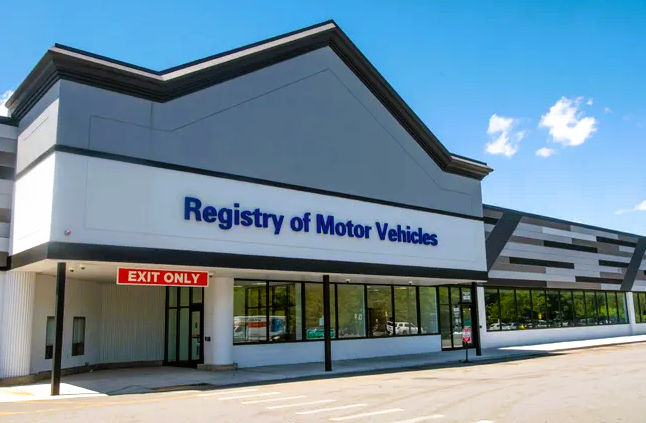
Overview of Traffic Laws and Vehicle Regulations
The Massachusetts Registry of Motor Vehicles (RMV) operates within a framework of state traffic laws designed to ensure the safe and orderly operation of vehicles on the road. These laws encompass a wide range of regulations, including speed limits, seat belt requirements, and rules related to distracted driving. All drivers are expected to familiarize themselves with these laws to promote road safety and avoid legal issues.
Key regulations include:
- Speed Limits: Posted speed limits must be adhered to, with specific limits varying based on road type and conditions.
- Seat Belt Use: Massachusetts law mandates that all drivers and passengers wear seat belts. Additionally, children under the age of 8 must be secured in appropriate child safety seats.
- Distracted Driving: Using mobile devices while driving is prohibited unless a hands-free system is employed, and texting while driving is strictly forbidden.
- Driving Under the Influence (DUI): Strict penalties apply for individuals caught driving under the influence of drugs or alcohol.
Compliance with these laws not only helps in avoiding fines but also promotes the safety of all road users.
Emissions Testing and Vehicle Inspections
In pursuit of cleaner air and reduced pollution, Massachusetts has implemented emissions testing as part of its vehicle inspection program.
- Annual Inspections: All vehicles in Massachusetts must undergo an annual safety and emissions inspection at certified inspection stations. This includes a check of safety features such as brakes, lights, and tires, as well as an emissions test to ensure that vehicles meet state environmental standards.
- Emissions Requirements: Vehicles that produce excess emissions may be required to undergo repairs before they can pass inspection. The state provides guidelines on acceptable emissions levels, and vehicles failing to pass can be prohibited from being driven until they meet compliance.
Failure to have a vehicle inspected on time can lead to fines and legal consequences, as driving an uninspected vehicle is considered a violation of state laws.
Addressing Violations and Penalties
When violations occur, Massachusetts employs a structured system for addressing driving infractions and assessing penalties.
- Traffic Violations: Common infractions include speeding, running a red light, and driving without a valid license. These violations can result in fines, points on the driver’s record, and potentially increased insurance premiums.
- Point System: Massachusetts has a point system in place, where points are added to a driver’s record based on the severity of the offense. Accumulating too many points within a specified time frame can lead to license suspension or other penalties.
- Addressing Tickets: Drivers cited for traffic violations have options for addressing the tickets they receive. They can pay the fine, contest the violation in court, or attend a court-approved program to mitigate penalties, depending on the circumstances of the violation.
- License Suspension and Reinstatement: Serious violations, such as DUI offenses or accumulating a certain number of points, can lead to temporary license suspension. The RMV outlines specific processes that individuals must follow to reinstate their license after suspension, which may include attending hearings or completing a drivers’ education program.
Understanding and adhering to these compliance regulations helps ensure that all drivers are operating within the law, contributing to safer roads throughout Massachusetts. This section of the guide empowers residents to recognize their responsibilities and navigate the consequences of non-compliance effectively.
Challenges and Improvements
Common Issues Faced by Massachusetts Residents
Residents of Massachusetts often encounter several challenges related to the Registry of Motor Vehicles (RMV). These include:
- Long Wait Times: Many individuals experience extensive wait times at RMV offices, especially during peak hours or before deadlines for license renewals and vehicle inspections. This can be frustrating and time-consuming for residents who are trying to complete necessary transactions.
- Complex Processes: The processes for vehicle registration, license applications, and renewals can be complicated, with various forms and documentation requirements that may not be clear to all users.
- Scheduling Conflicts: Due to limited hours and staffing at RMV offices, scheduling appointments can be difficult, particularly for those who work traditional hours.
- Technical Issues with Online Services: While the RMV has made many services available online, residents sometimes face system outages or technical glitches that hinder their ability to complete transactions.
- Awareness of Compliance Regulations: Many residents are unaware of specific compliance regulations regarding emissions testing, insurance requirements, and the implications of traffic violations, leading to unintentional infractions.
Recent Improvements and Technological Advancements
Recognizing these challenges, the Massachusetts RMV has undertaken a number of improvements and technological advancements aimed at enhancing the experiences of residents:
- Online Service Enhancements: The RMV has improved its online platform, making it more user-friendly and reliable for vehicle registrations, renewals, and appointment scheduling. This has reduced the need for in-person visits for many transactions.
- Appointment Systems: The implementation of appointment-based services has helped to alleviate long wait times for in-person services, allowing residents to plan their visits more efficiently.
- Mobile Applications: The introduction of mobile apps provides residents with easy access to RMV services and information, enabling them to manage their vehicle registrations and licenses from their smartphones.
- Outreach and Education Programs: The RMV has launched initiatives to raise awareness about compliance regulations, updating residents on changes to laws, testing requirements, and safety regulations through community outreach, informational sessions, and online resources.
- Streamlined Title Transfers and Registration Processes: Recent process refinements have made it easier for residents to transfer vehicle titles and register vehicles, with clearer instructions and more straightforward documentation requirements.
Future Initiatives and Reforms
Looking ahead, the Massachusetts RMV aims to continue addressing current challenges and enhance service delivery through various future initiatives and reforms:
- Expansion of Online Services: Further expansion of online services to cover more transactions, such as specialized licenses, variations in vehicle types, and enhanced customer support tools.
- Use of Artificial Intelligence and Automation: The RMV is exploring the use of AI and automation technologies to process applications and documents more efficiently, reducing human error and speeding up processing times.
- Improved Customer Experience Programs: Continued focus on customer service, including training for RMV staff to enhance interactions with residents, as well as the development of feedback mechanisms to gather insights directly from users.
- Integration of More Digital Identification Options: As part of the broader trend among states to adopt digital ID systems, Massachusetts may look to implement digital alternatives for licenses and registrations that enhance security and accessibility.
- Community Engagement and Public Forums: Increased engagement with the public to better understand residents’ needs and concerns, including hosting forums where the community can provide feedback on services and suggest improvements.
By addressing existing shortcomings and embracing technological advancements, the Massachusetts RMV is positioned to improve its service to residents, ensuring that the processes of vehicle registration and licensing are efficient, clear, and user-friendly. These initiatives underscore the commitment to enhancing compliance, safety, and overall customer satisfaction within the state’s transportation framework.
Understanding the New Jersey Motor Vehicle Commission 2024
NITHIN FERNAND
Tips for a Smooth RMV Experience

Navigating the Massachusetts Registry of Motor Vehicles (RMV) can be streamlined with proper preparation and planning. Here are some practical tips to ensure a smooth experience:
1. Preparing Documents in Advance
One of the most effective ways to avoid delays and complications at the RMV is to ensure you have all the necessary documents ready before your visit. Consider the following steps:
- Know the requirements: Familiarize yourself with the specific documents needed for your transaction. For example, vehicle registration may require proof of insurance, title, and identification, while a driver’s license renewal might need proof of residency and identification.
- Gather Required Documents: Compile all necessary documents in advance. Common items include:
- A valid photo ID (e.g., passport or Massachusetts driver’s license).
- Proof of residency (e.g., utility bill, lease agreement).
- Vehicle title (for registration or transfer of ownership).
- Proof of insurance (insurance card or declaration page).
- Double-Check for Accuracy: Ensure that all your documents are current and accurately match the information you’re submitting to avoid any issues at the counter.
2. Understanding Peak Times and Planning Visits
Timing your visit to the RMV can significantly affect your experience. Here are some tips on when to go:
- Avoid Peak Hours: RMV offices tend to be busiest at the beginning and end of each month, as well as on Fridays. The first week of the month is often particularly crowded. Try to visit midweek (Tuesday-Thursday) and during the middle of the month when traffic is generally lower.
- Consider Early Morning Visits: If possible, aim for early morning visits shortly after the office opens, as this can often result in shorter wait times compared to later in the day.
- Utilize Appointments: For transactions that allow appointments—such as road tests or certain service requests—be sure to book one in advance. This will provide a specific time slot and minimize your wait.
3. Utilizing Online Resources and Checklists
The RMV website provides a wealth of resources that can help you prepare for your visit and speed up transactions:
- Checklists: The RMV website offers checklists for various transactions, such as obtaining a new license, registering a vehicle, or renewing your registration. Review these lists to ensure you have all necessary documentation.
- Online Services: Take advantage of the online services for tasks that can be completed digitally, such as renewing your vehicle registration or updating your address. This saves time and reduces the need for an in-person visit.
- FAQs and Guides: The RMV website features frequently asked questions and detailed guides about the services offered. Utilize these resources to clarify procedures, understand regulations, and familiarize yourself with the necessary steps.
- Contact Information: If you have specific questions or need assistance, don’t hesitate to contact the RMV directly via their online chat, email, or phone options. This can help resolve potential issues before your visit.
By preparing your documents ahead of time, choosing the optimal time for your visit, and leveraging the extensive online resources available, you can experience a smoother, more efficient interaction with the Massachusetts RMV. These tips will help you navigate the complexities of vehicle registration and licensing while minimizing delays and frustration.
Conclusion
Navigating the Registry of Motor Vehicles (RMV) in Massachusetts is an essential aspect of vehicle ownership and responsible driving. The RMV plays a crucial role in ensuring road safety, compliance with state laws, and facilitating necessary services for drivers and vehicle owners. Understanding the intricacies of the RMV system, including traffic laws, vehicle regulations, compliance measures, and available services, empowers residents to engage more effectively with this vital institution.
The RMV is not just a regulatory body; it serves as a key player in the transportation framework of Massachusetts, impacting everything from emissions testing to license renewals. By being knowledgeable about the processes and regulations, residents can contribute to a safer driving environment while avoiding unnecessary frustrations and penalties.
Final Tips for Efficiently Navigating RMV Services
To further enhance your experience with the Massachusetts RMV, consider the following final tips:
- Stay Informed: Regularly check the RMV website for updates on policies, procedures, and any changes in laws affecting vehicle registration and licensing. Staying informed helps ensure you are aware of what to expect during your visit.
- Prepare Thoroughly: Gather and organize all required documents ahead of your visit. Double-check that everything is up-to-date and accurate to prevent delays during processing.
- Leverage Technology: Utilize the RMV’s online services whenever possible. From scheduling appointments to accessing your driving record, embracing digital resources can save you valuable time.
- Choose Off-Peak Times: Schedule your visits during midweek and avoid times when RMV offices are known to be busier, such as the start and end of the month. If you need to go in person, early mornings are often best.
- Know Your Rights and Responsibilities: Familiarize yourself with Massachusetts traffic laws and RMV regulations to ensure compliance and avoid penalties. Understanding your responsibilities can significantly enhance your overall driving experience.
- Be Proactive About Renewals: Keep an eye on expiration dates for licenses, registrations, and inspections. Taking action before these deadlines can help prevent last-minute scrambles.
By following these strategies, residents can navigate the RMV more efficiently and effectively, reducing stress and ensuring compliance with state regulations. The RMV remains committed to facilitating a smooth process for all Massachusetts drivers, and with the right preparation and knowledge, you can enhance your experience significantly. Your ability to navigate the RMV successfully not only benefits you but contributes to the overall safety and efficiency of the roads in Massachusetts.
Additional Resources
To further assist you in navigating the Registry of Motor Vehicles (RMV) in Massachusetts, here are some valuable resources, including links to important RMV webpages and contact information for customer support.
Important RMV Webpages
- RMV Main Website:
Massachusetts Registry of Motor Vehicles
The central hub for all RMV services, including information on license renewals, vehicle registration, and more. - Online Services:
RMV Online Services
Access various online services, including renewing your registration, applying for a license, and more. - Forms and Applications:
RMV Forms and Documents
A comprehensive list of downloadable forms necessary for various transactions with the RMV. - FAQs:
RMV Frequently Asked Questions
Find answers to common questions regarding RMV services, vehicle regulations, and more. - Appointment Scheduling:
Schedule an Appointment
Book appointments for specific services, including road tests and in-person visits. - Traffic Violations and Safety:
Traffic Violations and Safety Resources
Information on handling traffic violations and resources for improving road safety. - Massachusetts Laws and Regulations:
Massachusetts Vehicle Law
An overview of laws and regulations affecting drivers and vehicle owners in Massachusetts.
Contact Information and Customer Support
- RMV Customer Service Hotline:
Phone: (857) 368-8000
Available for inquiries regarding RMV services, processes, and other related questions. - Online Chat Support:
RMV Online Chat
Access real-time assistance through the RMV’s online chat feature for quick responses to your questions. - Email Support:
For general inquiries, you can email the RMV at [email protected]. Be sure to include your contact information and a detailed description of your request. - Social Media:
- Twitter: @MassRMV
Follow for updates and announcements regarding RMV services and regulations. - Facebook: Massachusetts RMV
Stay connected for news and community reminders.
- Twitter: @MassRMV
- Physical Locations:
Use the RMV Branch Locator to find the nearest RMV service center, including their addresses, hours of operation, and available services.
By utilizing these additional resources, you can enhance your experience with the Massachusetts RMV and ensure that you’re well-prepared for your visits. Whether you need information about specific services, forms, or contact details, these resources will provide guidance and accessible support to help you navigate the various processes efficiently.
Appendix
Glossary of Common Terms
- RMV (Registry of Motor Vehicles): The government agency responsible for vehicle registration, driver licensing, and overseeing road safety in Massachusetts.
- Driver’s License: An official document that permits an individual to operate a motor vehicle.
- Registration: The process of registering a vehicle with the RMV to be legally driven on public roads.
- Title: A legal document proving ownership of a vehicle, which must be transferred when selling or buying a vehicle.
- Proof of Insurance: Documentation that shows a driver has valid auto insurance coverage as required by state law.
- Renewal: The process of updating a driver’s license or vehicle registration to extend its validity for another term.
- Learner’s Permit: A restricted license that allows new drivers to practice driving under certain conditions before obtaining a full driver’s license.
- Vehicle Identification Number (VIN): A unique code assigned to a vehicle for identification purposes.
- Suspension: The temporary revocation of driving privileges due to violations of traffic laws or failure to comply with regulations.
- Traffic Violation: Any breach of traffic rules, which can include speeding, running a red light, or driving without a valid license.
FAQs
1. What do I need to bring to the RMV?
Before visiting the RMV, make sure you have all necessary documents relevant to your transaction, such as a valid photo ID, proof of residency, vehicle title, and proof of insurance.
2. How do I schedule an appointment at the RMV ?
You can schedule an appointment through the RMV’s website by visiting the Appointment Scheduling page.
3. Can I complete my transaction online?
Many RMV services, including renewal of registration, changing your address, and applying for a learner’s permit, can be completed online. Visit the RMV Online Services page for a full list.
4. What are the hours of operation for RMV service centers?
RMV service centers typically operate Monday through Friday, but hours may vary by location. Check the RMV Branch Locator for specific hours of your local office.

